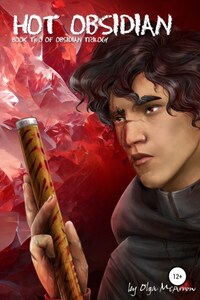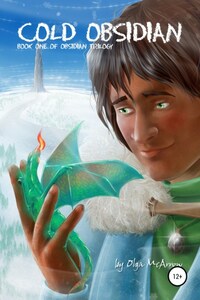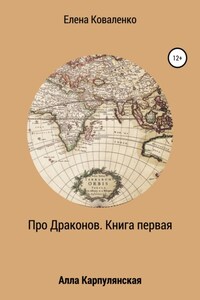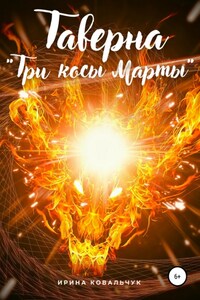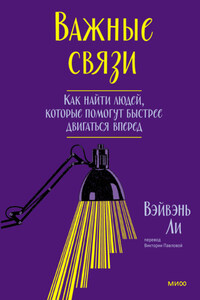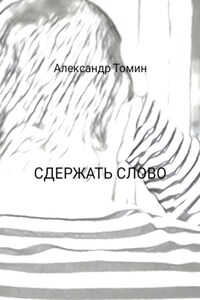Everyone knows Lifekeepers, the warriors of mercy, those who bring light and justice to the darkest corners of the world where even stable magic does not reach. But few know the Order of the Hot Obsidian, a small but ancient group of cultists running the Lifekeepers as a mere facade for their own agenda. Well, this book is about them. Them and the ten boys they send on a mission, knowing that only one of them will survive in the end.
We will learn about Kangassk’s father and mysterious the Hora thief along the way as well.
“Hot Obsidian” is the second book of Obsidian Trilogy but, since it explains the same events from the other side of the conflict, you can read it before “Cold Obsidian” just fine.
-–
Read the book with the author’s illustrations here: https://mildegard.ru
All poems in the book were translated from Russian by Alan Jackson. Visit his site as well: https://www.cosxhyp.xyz
To the outer world, domain of cruelty,
No warmth I yield, no due from my hot core;
An outcast spirit my true security -
Ill upon ill my gift, as herebefore.
When I was born, my fire, my heart-light glowed
Red through my dark volcanic glassy skin:
My frame, my prison, body, and abode -
My truth; hot fire in hard obsidian.
In the outer worlds, domains of cruelty,
No love I find from folk in either realm.
Have you the courage to take hold of me?
And in that throng of foes be overwhelmed?
No miser I, no niggard hoarding gold;
To you, whose brave heart or whose mind insane
This challenge takes, I will repay ten-fold:
A world I’ll give to you, in fief and main!
A human life a ripple is in the stream;
A thrush’s song, a snowflake in the spring.
My bearers fly, forgotten as a dream
At dawn; and I forgotten lingering.
So has it been, but now a promise sure,
Wrought by a sage, of immortality
For you, my bearer-youth, my end, my cure,
My heart-beat’s beat, my own eternity.
So take me, boy, your panoply of war,
Take me, your deathlessness, your hope, your crown,
Take me, and rule the world you’re destined for,
Take me, your power, your Hot Obsidian.
Chapter 1. Magrove temple
When the truth about the origins of a world gets forgotten, religions take its place. Small grains of the truth are still hidden in them but their adepts lack the tools to pick the precious grains out. They guess, they argue, they make statements without proof. Contradictions grow, sparkling endless wars between people, dividing them, consuming them, destroying them. That is how the Primal World fell, my children. Whether Omnis will follow its steps, is up to you to decide.
Hansai Donal. Forbidden Book of Omnis
Blessed is the one who has seen Magrove forest in spring when there is more purple than green. This is how diadems – local trees with long, drooping branches – bloom. In spring, their petals, purple on one side, white on the other, fall everywhere like snow and confetti, giving the forest an otherworldly look. It’s hard to get lost in this forest of thin trees and wide paths, unless you mean getting lost in thought.
Magrove forest is one of the sacred places for Lifekeepers, warriors of mercy. They wear simple clothes and lead simple lives. The only sure way to spot such a warrior is to look at his or her sword: it’s always, always a katana without a handguard. By removing handguards from their swords, the Lifekeepers open a way to the blunt side of the blade. That allows them to use a wide set of fighting techniques which would be impossible otherwise; the techniques they often use to immobilize their enemies without killing them. The techniques they use to save lives.
That day, ten great masters went through Magrove forest with their apprentices, all heading to the Temple of Life where they had agreed to meet. Godless, this temple had always been open for everyone, it celebrated life and made no demands.
It was a quiet morning filled with sunlight. Two dozen young Lifekeepers were practising sword katas in the temple yard while small groups of older warriors scattered around the temple garden spoke of life, death, and philosophy in hushed voices. No one wanted to disturb the serene silence of the magical spring. Everything – sparring sessions, loud debates, merry songs – could wait.
Blooming diadems – their rich aroma, their otherworldly colours, their petals softening footsteps on every path – reigned over everything here. The ancient city of Firaska was humming like a busy beehive not far away but its restlessness had no power in this place. Good. Young Lifekeepers needed peace and quiet to learn well. And old Lifekeepers needed the same to heal their wounds and keep their demons away.
The sun was slowly rising above the horizon, a tiny spark reflected thousands and thousands of times in droplets of morning dew. The dying night’s breath was still heavy on everything, big or small, and the air was cool and damp. Two men on the temple balcony wrapped their woollen cloaks around them to stay warm.
One of them was old, his hair a snowy crown, his eyes two frozen azure pools, his stance a display of power. His name was Sainarnemershghan Saidonatgarlyn (though the world knew him better by his pen name – Hansai Donal) and he well knew the history behind it. The history that had its roots in the fall of Erhaben.
The second man was younger, his hair barely grey at the temples, and looked so much like Sainar that there could be no mistake: those two were relatives. The younger man’s name was Kangassk Abadar.
“You’ve always been the first, son,” said Sainar with a proud smile. “I bet your apprentice has the same spirit. I haven’t seen him for so long! What can you tell me about your boy?”
“My Juel is a pureblood Faizul and that says it all,” said Abadar proudly. “He is a fearless warrior and a strong leader. He would already be leading armies to war back in his homeland.”
“Well, he’ll have to lead a group of nine boys for starters,” chuckled Sainar. “We’ll see how easy he finds it!”
“Where are you sending them, father?” asked Kangassk Abadar. There was scepticism in his voice and a hint of challenge. “And what is the point? Only three of them are adults. Okay, Majesta’s boy is sixteen and Orlaya’s is fifteen, but the rest are just little children.”
“It’s not your place to argue with me, son,” said Sainar, his voice as gentle as a blunt side of the blade touching a victim’s neck. “I will explain everything when the time comes. But first, I want to take a look at the boys.”
***
The apprentices of Sainar’s ten children had never met before. Now they stood in the temple’s library, all ten of them, and studied each other in silence. The sun was already high; its slanted rays fell into the library hall through the tall, narrow windows and gilded every dancing speckle of dust along the way. No other student shared the room with the ten young guests. They were alone in the spacious hall.
